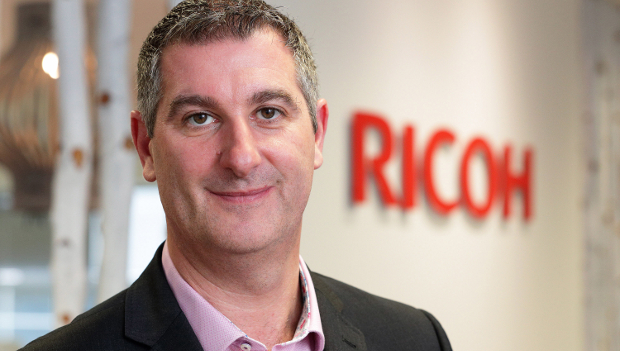Ireland could achieve a 1% growth in Gross Domestic Products (GDP) through optimising workplaces, according to a study by Ricoh and Oxford Economics.
This growth, representing some €3.4 billion, would be achieved by providing more up-to-date technologies, embracing ethical business practices and enhancing office workspaces.
According to the study among 200 executives and 200 employees in organisations across Ireland and the UK, 93% of Irish workers believe their workstation is essential to their productivity levels. The other leading factors cited were office environment, including lighting and airflow, and collaborative spaces, such as meeting rooms and communal areas. The same proportion (93%) said improvements to workstations would boost their productivity.
Business leaders also appreciated the importance of office environment on effective business performance with 87% ranking it as a critical element. Two-thirds (67%) felt that employee workstations were vital for output, suggesting that executives need to reassess the layout, design and privacy of employees’ personal space in order to help them reach full potential.
Enhanced productivity
According to the research, if organisations were to take the initiative and optimise offices, they could not only enhance business productivity but boost revenues that would ultimately result in the projected increase in GDP.
The sectors in Ireland that would benefit most from office optimisation, says the report, were financial services (€1 billion), healthcare (€854 million), business services (€555 million), education (€489 million) and the public sector (€468 million).
The report said that more than a third of Irish businesses are planning to spend between 5% and 10% of their total operating costs on office modernisation initiatives in the next year.
“This new research,” said Chas Moloney, director, Ricoh Ireland and UK, “really demonstrates the importance of culture, workspace and technology in terms of employee efficiency and business performance. Of course, it’s not solely about output, it’s about enabling effective decision-making, promoting wellbeing, encouraging innovation and establishing trust among workers.
“Culture is the foundation of a company and it serves as a stimulus which enables creative-thinking and innovation. The optimal office is the setting in which employees can be empowered and supported by bespoke workstyles. Irish businesses have a responsibility to assess and enhance where and how people work. In return, companies will benefit from heightened levels of productivity and employees who are invested in the optimal office.”
Remote working
The research also explored the area of remote working, highlighting that more than half of executives feel they provide the tools required to assist remote working and the vast majority (83%) of workers believe they could be more efficient given the right technology to enable mobile workstyles.
Furthermore, Irish employees revealed the improvement of technology would have the greatest impact on the amount of time they spend at work, how they collaborate with colleagues and those outside the organisation, and the generation of creative ideas.
However, the emphasis for most (90%) Irish workers was not about technology, revealing that business ethics and values encourage them to work more effectively, further demonstrating the importance of culture. The vast majority of business executives (97%) also acknowledged this, citing the commitment to ethical business practice, defined by transparency and sustainability, as having a strong influence on performance.
Speaking to TechPro, Moloney said the research was prompted by the litany of IT project failures that still garner headlines all over the world. In seeking to understand why IT project failures still occur, the research showed there is often too great a focus on technologies, and at the wrong time.
“We have always believed that the path to new found performance and productivity lies in Workstyle Innovation,” says the report, “which is an approach through which organisations implement bespoke workspace, process and technology solutions to create one cohesive and highly effective workstyle.”
Four pillars
Moloney explained that this path to innovation must be tackled on four key pillars: People, Place, Process, Technology.
It is vital, he said, to tackle these areas in the right order. In the past, said Moloney, organisations all too often approached IT projects from the perspective of ‘we’ve got a problem, let’s find a technology to deal with it’.
“What organisations aren’t necessarily doing is saying ‘I’ve got a problem; let’s fully understand it from the person’s perspective’,” he said.
“That is either missed altogether or carried out at a superficial level.
Therefore, when the technology is brought in, users are saying ‘this isn’t fixing my problem’, therefore, it doesn’t deliver the outcome.”
“The People pillar is where you have to start,” Moloney asserts. “Until you fully understand the way your people are working, both qualitatively and quantitatively, you really can’t move on to the next part of the process. Without that analysis, that full understanding, you are not going to get success, or the level of success you hoped.
“From there, it moves onto place, and the work place has changed dramatically. When you are analysing, technology adoption, where is this digital transformation taking place, it is in this office — but is this the right place to do it?
“But then, people are also working on trains and in planes, in cafes, etc – the place of work is anywhere now.”
Process perception
The third pillar is process, which Moloney says is often perceived as the least engaging element, but a vital one.
“Understanding how you start to link those people problems, the productivity problems at the start, having understood where that needs to take place, designing your processes and building those processes is critical. That takes a lot of time and expertise and is fundamental to success.”
“It is only then, after understanding people, getting place in context and designing appropriate processes, only then can you look for technologies.”
Ricoh has successfully implemented this approach internally, said Moloney, and used that experience to train staff, from sales to subject matter experts, to help clients achieve the benefits.
“This approach takes longer, but increases the chances of success,” said Moloney.
TechCentral Reporters








Subscribers 0
Fans 0
Followers 0
Followers